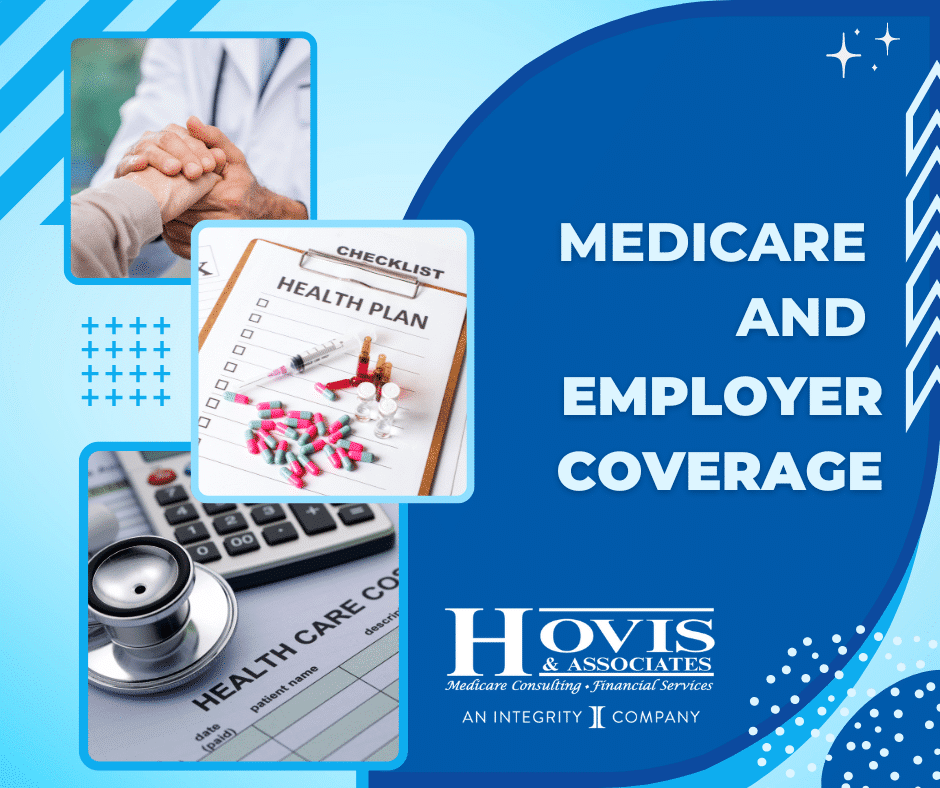It is common for people to keep working beyond age 65. If you continue to work after reaching age 65, you technically become eligible for Medicare, but that doesn’t necessarily mean that you must enroll in Medicare. Even if you have other health coverage available to you, you will still need to make Medicare enrollment decisions prior to reaching the age of 65.
Here are some key factors to help with your decision.
Creditable Coverage
- If you or your spouse are covered under an employer sponsored health plan, talk to the employer’s human resource department to see if the plan is considered creditable coverage. Medicare defines creditable coverage as coverage that is at least as good as what Medicare provides. If your employer is not considered creditable then you could be subject to a late enrollment penalty.
Group Size
- Consider the employer sponsored health plan group size. If your employer has a group size of fewer than 20 employees, you will need to enroll in Part A & Part B, because Medicare will be the primary payer. Failure to enroll in Medicare may result in little to no health coverage because group plans may not pay until after Medicare pays. If the employer has 20 plus employees, employer coverage is primary, and you may choose to delay Medicare enrollment in Part A and Part B. It’s important to contact your employer sponsored health plan administrator to find out how the plan coordinates with Medicare.
Health Savings Accounts (HSA)
- If you have an HSA, through your employer and you choose to enroll in Medicare, you will NOT be able to make any additional contributions to your HSA account. You also cannot accept any contributions from an employer if you have Medicare. However, you can use the funds from your HSA after enrolled in Medicare to help pay for coinsurance, copayments, deductibles, and premiums. If you choose to stay with the employer group plan and delay Medicare enrollment and want to continue to contribute to your HSA, you should also wait to collect Social Security benefits. Most individuals who are collecting Social Security benefits are automatically enrolled into Medicare Part A. You should delay social security benefits and decline Medicare Part A if you wish to continue to contribute to your HSA. Check with your tax adviser about HSA rules for Medicare beneficiaries.
COBRA
- If you are on COBRA and qualify for Medicare, most clients will see a cost reduction by choosing a Medicare plan and disenrolling from COBRA. Also, COBRA is not considered creditable coverage for Medicare Part A and Part B, therefore you could be subject to a late enrollment penalty and remain on cobra after you become Medicare eligible.
Medicare Costs
- Consider the cost of Medicare. If you or your spouse worked the required 40 quarters or 10 years you may not have a Medicare Part A premium. The standard Medicare Part B premium is $164.90 in 2023. If your modified adjusted gross income from 2 years prior is above a certain amount, you will pay the standard Part B premium plus an (income related monthly adjustment amount) (IRMAA). It is wise to factor in the cost of Medicare premiums when planning for retirement, as it is important to ensure that you have the financial resources to cover these expenses.
When deciding between an employer-sponsored health plan and Medicare, choosing the most cost-effective approach takes a bit of work. It is essential to correctly transition from employer coverage to Medicare to avoid penalties or lapses in coverage. Call Hovis & Associates at 636-937-4343 with questions regarding your Medicare options and working past age 65.
Are you an agent looking to learn more about how employer -sponsored health plans work with Medicare, attend our agent training, Employer Coverage & Medicare on Tuesday, May 23, 2023, at 11:00AM. We offer both in-person and virtual training options. RSVP: https://bit.ly/3VhqUo8
#WeAreHovis
https://www.medicare.gov/Pubs/pdf/11579-medicare-costs.pdf
https://www.medicare.gov/basics/get-started-with-medicare/medicare-basics/working-past-65

